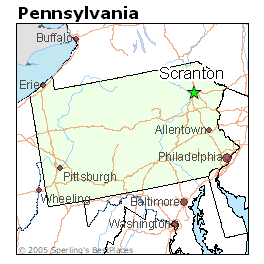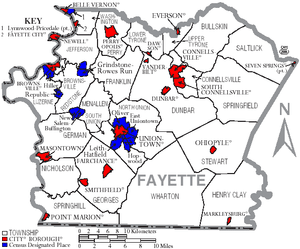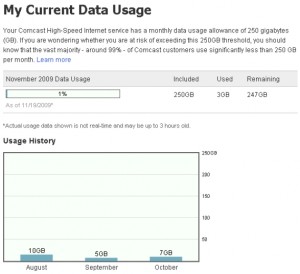Viewers across Oneida, Herkimer, and other adjacent central New York counties lost their local NBC station early this morning after another retransmission consent dispute led Time Warner Cable to drop WKTV-TV in Utica, N.Y., from the lineup.
The fact Time Warner dropped a station is hardly unprecedented, but the cable company managed to replace the station almost immediately. Away went WKTV, in came Nexstar-owned WBRE-TV, an NBC station serving Wilkes-Barre/Scranton, Penn.
This morning, Mohawk Valley viewers woke up to watching local news and weather for the Susquehanna Valley — 187 miles away to the south.
While Time Warner’s apparent agreement with WBRE keeps NBC shows rolling, the loss of local news and weather represents a major blow for area subscribers, many enduring a western and central New York winter that has brought more than 50 inches of snow in just the last two weeks in some areas.
Utica city officials expressed concern about the loss of the local Utica station because important snow emergency alerts were often delivered over the station.
“They might as well have imported a station from Florida, because there is very little in common between Herkimer County, New York and Luzerne County, Pennsylvania,” writes Steve, who lives in Herkimer. “You would have thought they would have just grabbed an NBC station from Syracuse.”
Apparently, Time Warner has permission from Nexstar to import the distant signal of the Pennsylvania station for impacted subscribers. The effective reinstatement of network programming may make it more difficult for WKTV’s owner, Smith Media, to negotiate the station’s return to Time Warner’s lineup anytime soon. That one NBC affiliate may have granted permission to replace another station during a contract dispute may become a point of contention on the network level. Traditionally, broadcasters have not been quick to undercut other stations with such carriage agreements.
Smith’s other stations were also affected. Time Warner dropped WFFF (Fox) AND WVNY (ABC), which serve the Burlington, Vt. market and the CW-affiliated digital sub-channel running alongside WKTV in Utica. The station owner launched a website to share their position and educate people about how to receive the signals either over-the-air or via satellite.
In nearby Rochester, Time Warner continues to play hardball with Sinclair Broadcasting over a carriage agreement renewal for WUHF-TV. But Time Warner customers facing the loss of the Fox affiliate will not see any interruption of Fox network programming — the cable company has a separate agreement with the network. Ironically, Sinclair jointly operates WUHF with Nexstar Broadcasting of Rochester LLC, the owner of WROC-TV, the city’s CBS affiliate.
[flv width=”640″ height=”500″]http://www.phillipdampier.com/video/WKTV Carriage Dispute 12-16-10.flv[/flv]
Time Warner’s replacement of WKTV-TV in Utica with a distant station may be a new tactic in the hardball war over cable-broadcaster carriage agreements. WKTV ran several stories about how the station’s loss impacts the area. YNN’s Central NY news station, run by Time Warner Cable, also ran its own story this morning, all of which are covered here. (9 minutes)


 Subscribe
Subscribe









